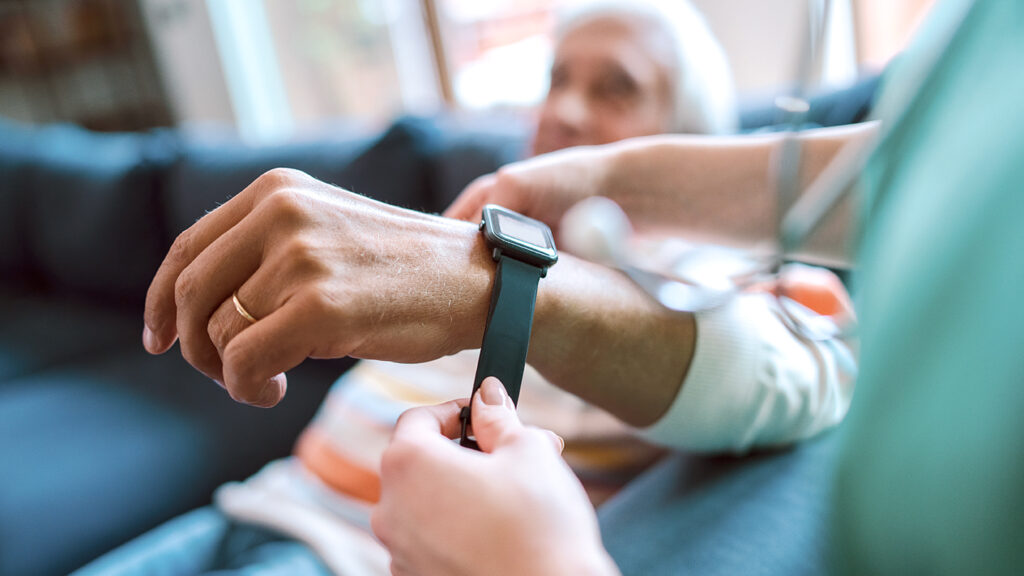
New machine learning technology, a type of artificial intelligence, may allow clinicians to passively collect data about a patient’s psychological and mental well-being from wearable devices, according to a new study.
Researchers from the Icahn School of Medicine at Mount Sinai in New York studied the use of wearable devices, such as the Apple Watch, as a way to assess and monitor the psychological states of patients without requiring the completion of a lengthy questionnaire. It is believed to be the first study of its kind, investigators said.
“The goal of this research is to utilize wearable devices in patient and psychological care, allowing the remote and passive assessment of resilient or positive psychological states,” study authors wrote. “Additionally, it could be utilized to monitor an individuals’ response to psychological interventions.”
To test their findings, researchers evaluated data from 329 subjects, using a prospective cohort of healthcare workers enrolled at seven hospitals in New York City. Surveys were collected measuring resilience, optimism and emotional support at baseline. Subjects wore an Apple Watch during the duration of their participation, which measured their heart rate variability and resting heart rate throughout the follow-up period.
Investigators found the metrics collected to be predictive in identifying resilience, an individual’s ability to cope with adversity and other psychological factors.
“Wearables provide a means to continually collect information about an individual’s physical state. Our results provide insight into the feasibility of assessing psychological characteristics from this passively collected data,” said lead author Robert P. Hirten, MD, clinical director of the Hasso Plattner Institute for Digital Health at Mount Sinai, in a news release.
“To our knowledge, this is the first study to evaluate whether resilience, a key mental health feature, can be evaluated from devices such as the Apple Watch,” he added.
Mental health issues are relatively common, with an estimated one-fourth of the population experiencing psychological illness at some point. But resources for the evaluation and treatment of these issues are limited, according to the researchers. They hope that digital technologies, such as wearable devices, will provide a possible means to improve mental health assessments.
The study, titled “A machine learning approach to determine resilience utilizing wearable device data: analysis of an observational cohort,” was published in Tuesday’s (May 2) issue of the JAMIA Open.

